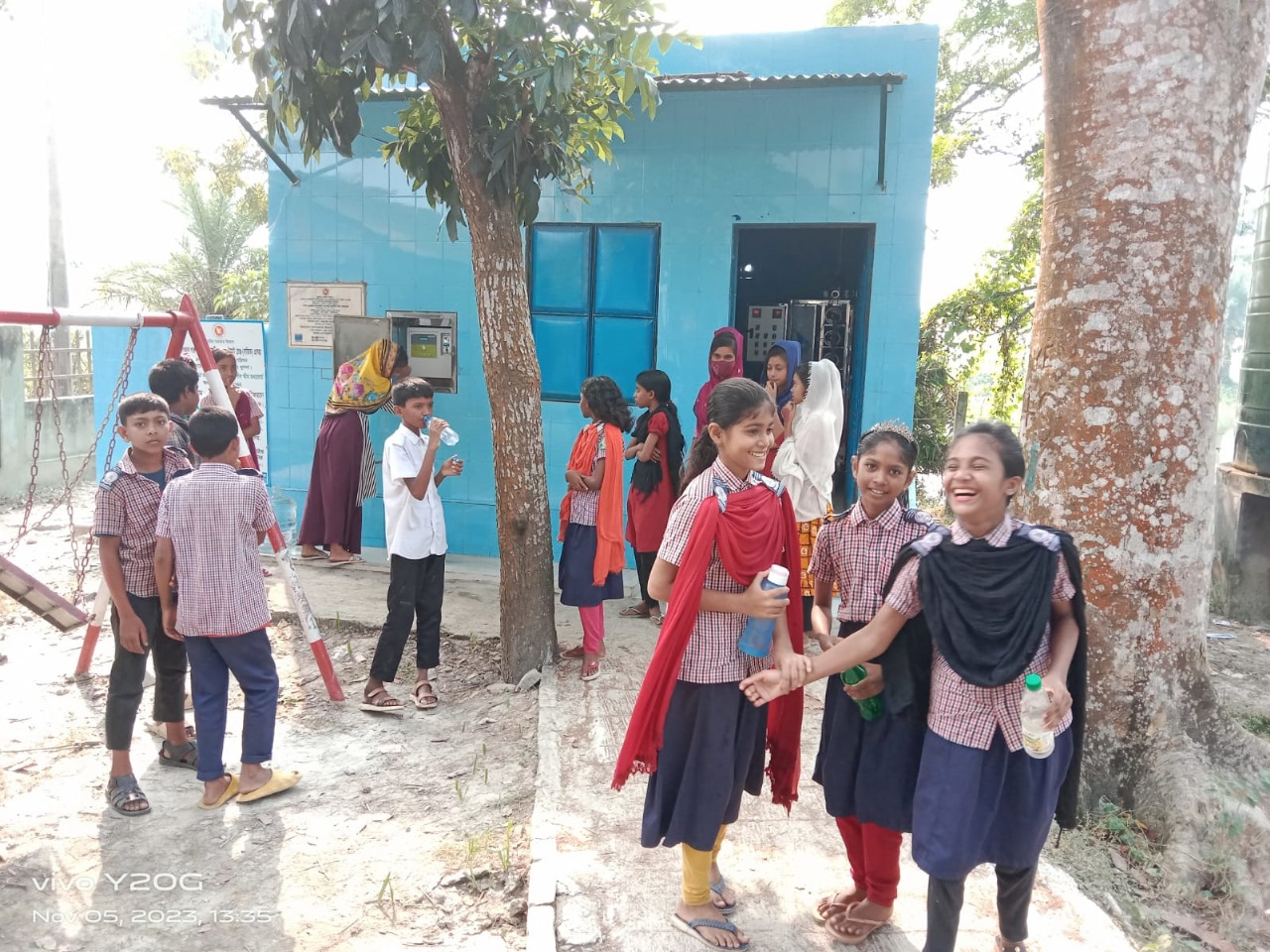As Bangladesh is one of the most vulnerable countries to climate change, the people of Dacope Upazila in Khulna district faced a unique set of challenges due to increasingly salty groundwater.
For generations, the residents of this region had been intimately connected to the land, relying on its fertile soil and clean water for their livelihoods. However, the encroaching saltwater from the Bay of Bengal made life in Dacope increasingly difficult. The once-abundant fresh groundwater had become saline, rendering it undrinkable and unsuitable for agriculture. The community was forced to make a choice between their basic needs and the future of their children’s education.
The situation was dire. Many families had no choice but to use contaminated water from drains, leading to a surge in waterborne diseases, particularly among children. The lack of clean water was a constant threat to their health, while the cost of education seemed an insurmountable obstacle for those living in residential brothels.
Then, a glimmer of hope emerged in the form of a water treatment plant established by the United Nations Development Programme (UNDP) jointly with the Bangladesh Government and UNCDF under the Local Government Initiative on Climate Change (LoGIC) project, supported by the European Union, Sweden and Denmark.
This water treatment plant was more than just a facility to purify water; it was a symbol of transformation and community support. It not only provided clean and safe drinking water but also brought together diverse members of the community, including students, families, and even a mother from a brothel, who was entrusted with the responsibility of looking after the plant.
The impact was immediate and profound. The children of two local schools received free water from the plant, ensuring their health and well-being. Additionally, the plant produced 10,000 litres of clean drinking water daily, benefiting over 2,500 people, who accessed water through ATM cards and vans at an affordable price.
What made this water treatment plant even more remarkable was its unique purpose. The proceeds generated from selling water at 50 paise per liter were dedicated to financing the education of school-aged children living in residential brothels. This innovative approach provided a lifeline for these vulnerable children, allowing them to escape the cycle of their current circumstances and enter the mainstream of government development.
As the water treatment plant flourished, it demonstrated the power of a community coming together to address climate change adaptation and support its most vulnerable members. The plant’s monthly revenue could range from Rs 50,000 to 70,000, a substantial sum that would be channeled entirely into the education of the children.
The LoGIC project, had succeeded in building the capacity of vulnerable communities to adapt to climate change and implement solutions in areas most affected. This special water treatment plant, funded by the Performance Based Climate Resilient Grant, was a testament to their unwavering commitment to the community’s well-being and future.
The story of Dacope is a story of resilience, unity, and the indomitable spirit of communities faced with the challenges of climate change. Through innovation, determination, and cooperation, the people of Dacope not only secured clean water but also the promise of education for their children, lighting the path to a brighter, more climate-resilient future.
